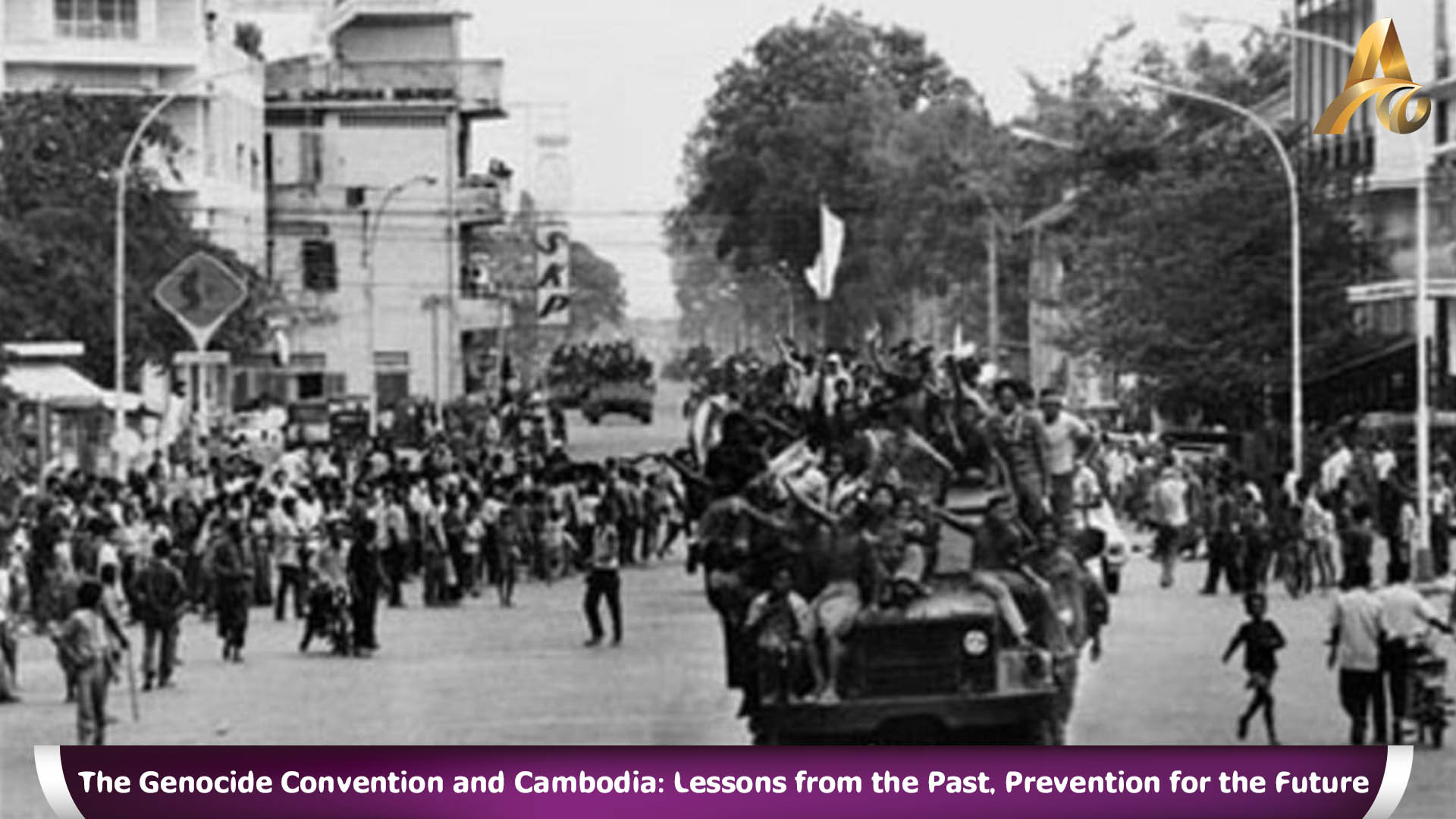PHNOM PENH, May 20, 2024 — The Genocide Convention, formally known as the "Convention on the Prevention and Punishment of the Crime of Genocide," represents a pivotal moment in international law. Adopted by the United Nations General Assembly on December 9, 1948, as the first human rights treaty, it marked a global commitment to "never again" permit atrocities like those witnessed during the Second World War. Seventy-five years on, this commitment was commemorated, reflecting on both its legacy and the ongoing challenges in preventing such crimes.
On October 14, 1950, Cambodia was among the first Southeast Asian nations to ratify the Convention, pledging to prevent and punish the crime of genocide. This commitment was severely tested between 1975 and 1979, when Cambodia endured the brutal regime of the Khmer Rouge, underlining the need for constant vigilance and proactive measures to prevent genocide.
The necessity of this commitment is underscored annually, as Cambodia engages in thoughtful reflection on the Genocide Convention's ongoing relevance, especially in light of the increasing risk factors for genocide globally. This reflection is part of ensuring that the horrors experienced during the Khmer Rouge era are neither forgotten nor repeated.
Cambodia's unique approach to upholding its obligations under the Genocide Convention is exemplified by the work of the Extraordinary Chambers in the Courts of Cambodia (ECCC). This tribunal has not only brought former leaders of the Democratic Kampuchea regime to justice but also reinforced the application of the Genocide Convention through significant verdicts for crimes against humanity and serious breaches of the Geneva Conventions.
The recent three-day conference in Phnom Penh, co-hosted by the Royal Government of Cambodia and the Documentation Centre of Cambodia, provided a platform for dialogue, emphasizing the critical role of discussion in upholding the global commitment to "never again." This event was an opportunity to hear from survivors and victims, exchange views with government officials, and engage with Cambodia’s vibrant civil society on these pressing issues.
Moreover, the conference highlighted the importance of educational initiatives and the dissemination of information as fundamental components of genocide prevention. These efforts are crucial in a time of peace, as they lay the groundwork for a well-informed society capable of recognizing and responding to early warning signs of potential atrocities.
Cambodia's journey from a post-conflict nation to a participant in UN peacekeeping missions and a partner in pursuing the Sustainable Development Goals (SDGs) illustrates the transformative power of addressing past atrocities to secure a peaceful future. The nation's experience offers invaluable lessons not only for Cambodia but also for the international community in conflict resolution and peacebuilding.
The discussions at the conference also advocated for the creation of a dedicated state institution to continue Cambodia's commendable efforts in genocide prevention, education, and public awareness. This proposed institution would ensure that Cambodia’s historical experiences continue to inform its national policies and help prevent future atrocities.
As Cambodia continues to share its lessons from the ECCC and its broader historical experiences, it stands as a beacon of hope and resilience, reminding us of the profound importance of the Genocide Convention and the collective responsibility to uphold the solemn vow of "never again."























